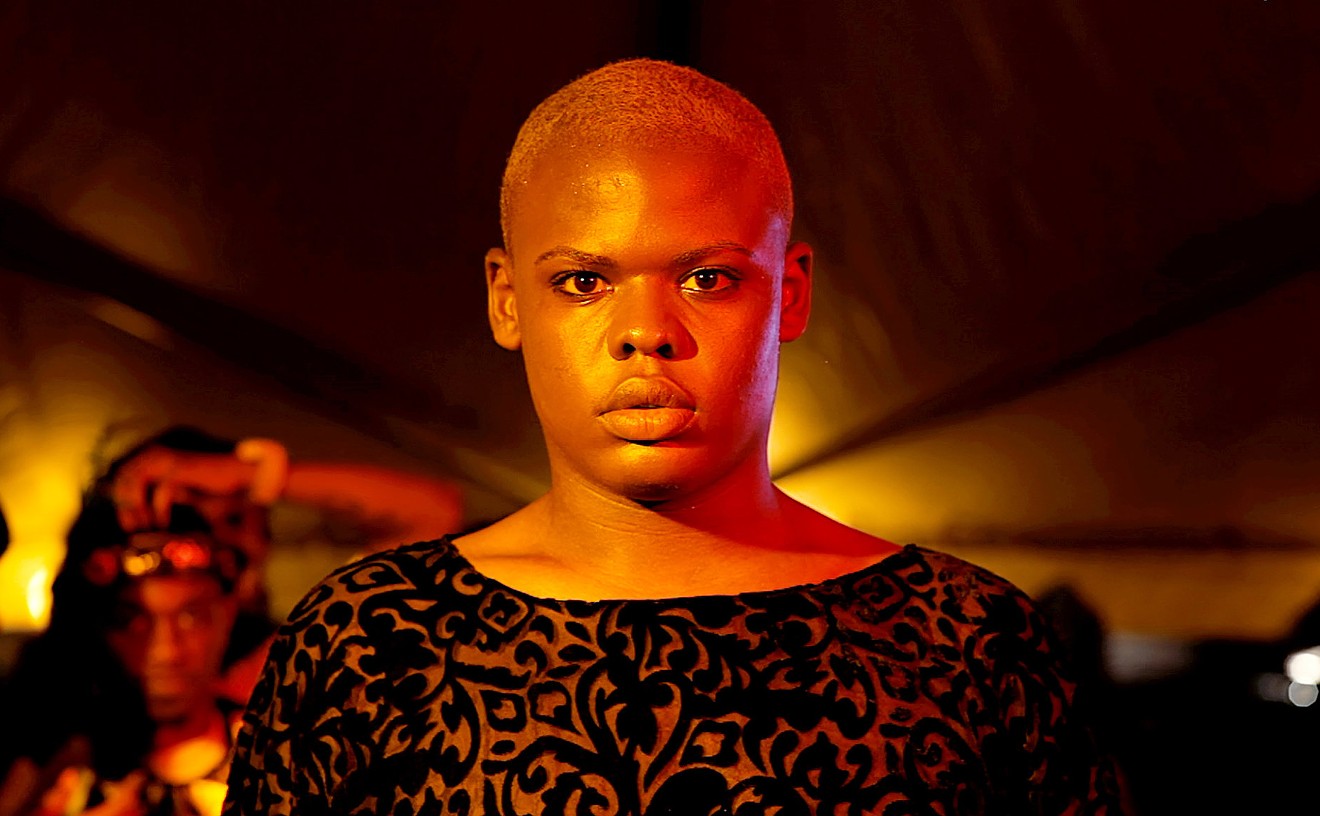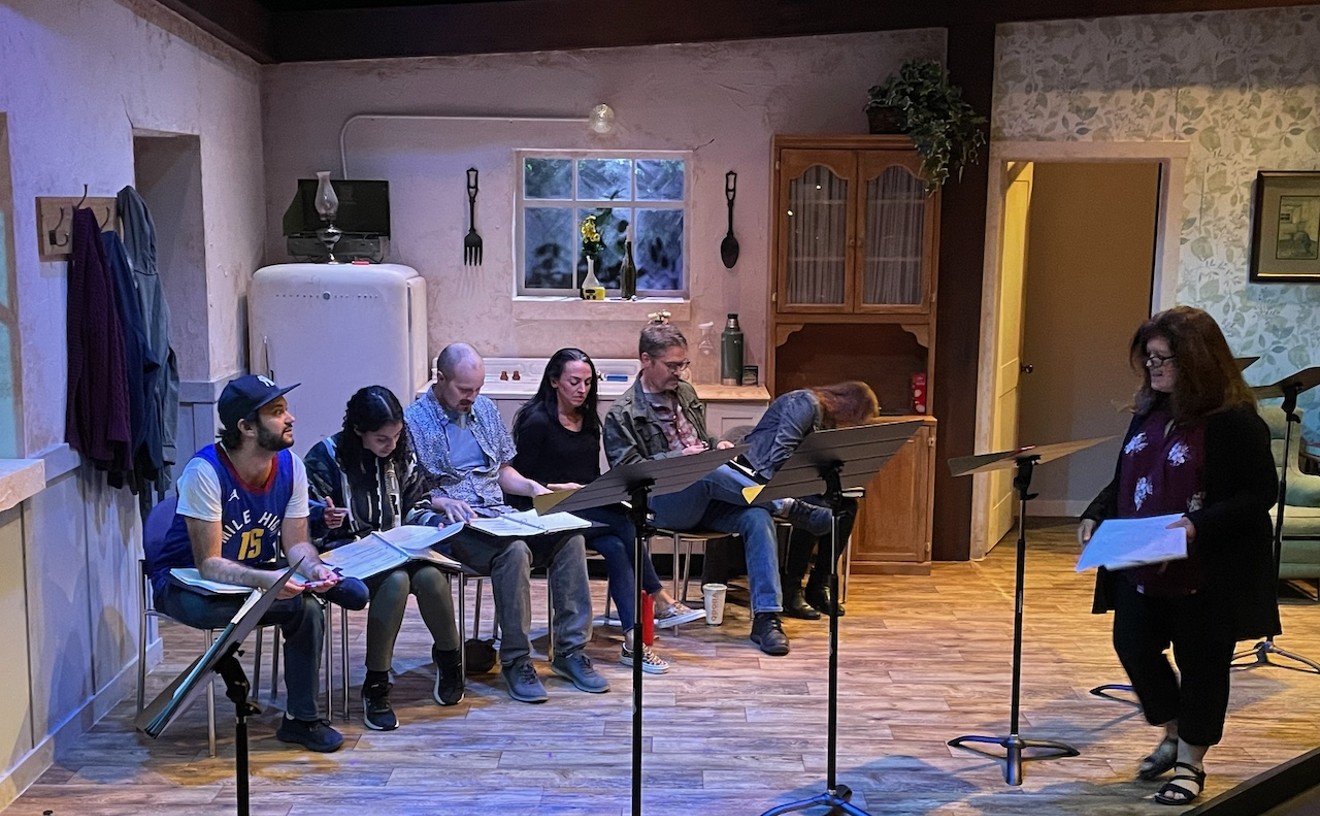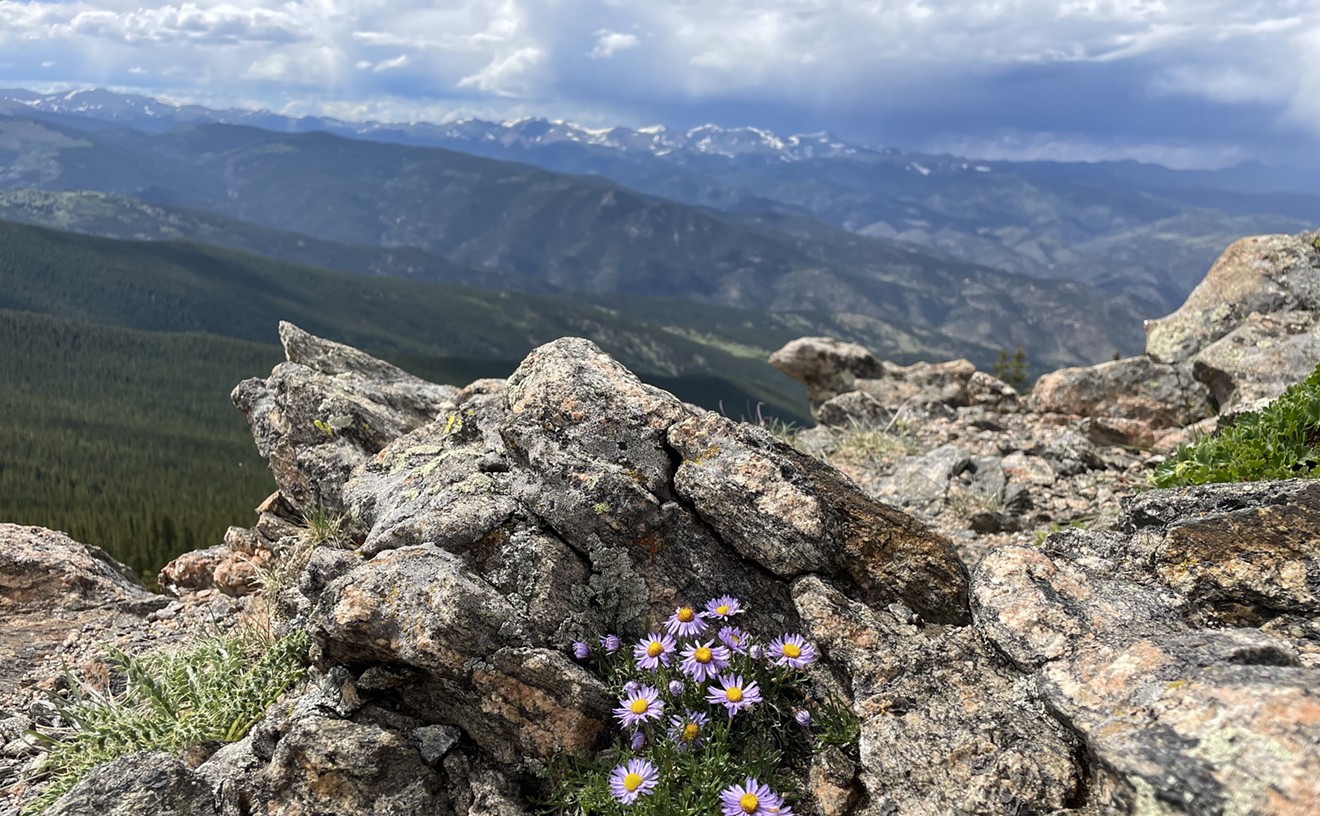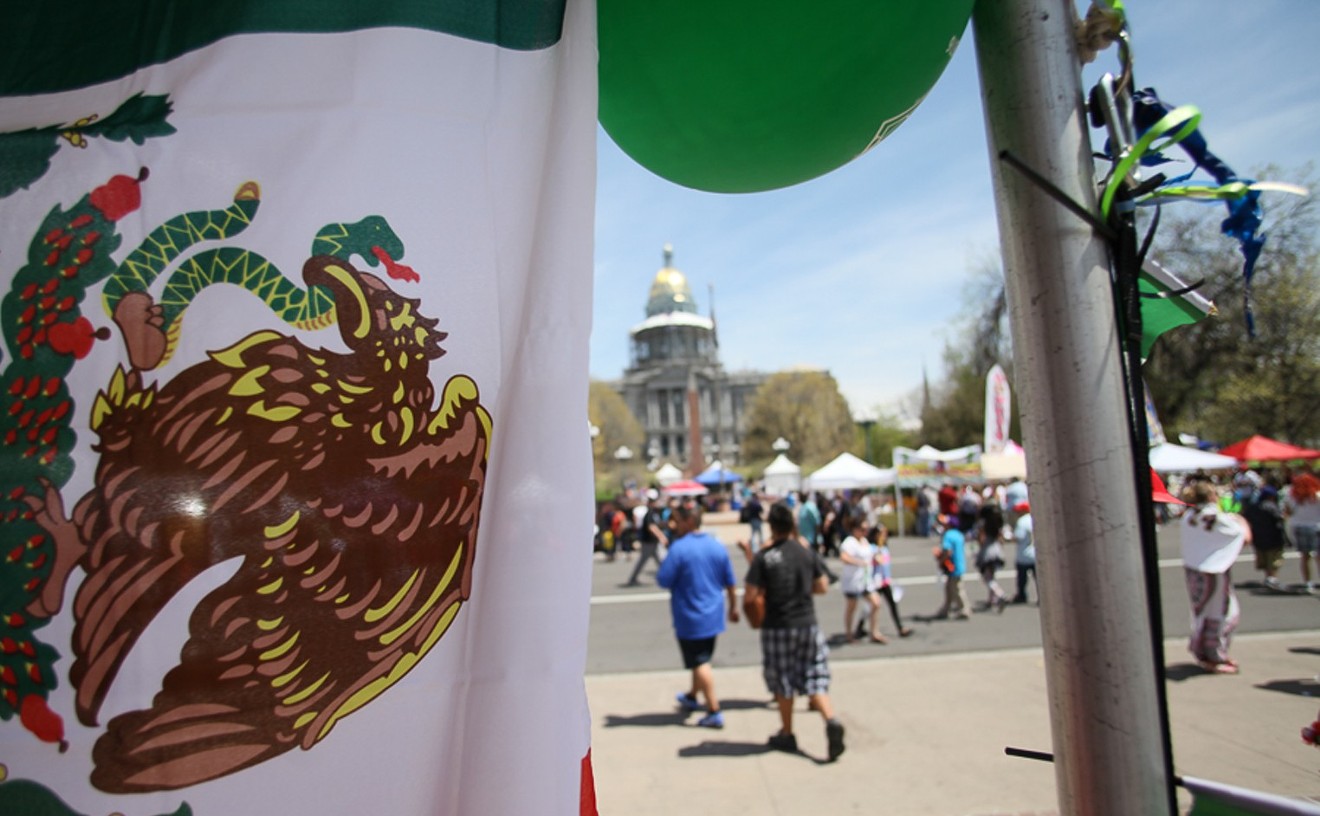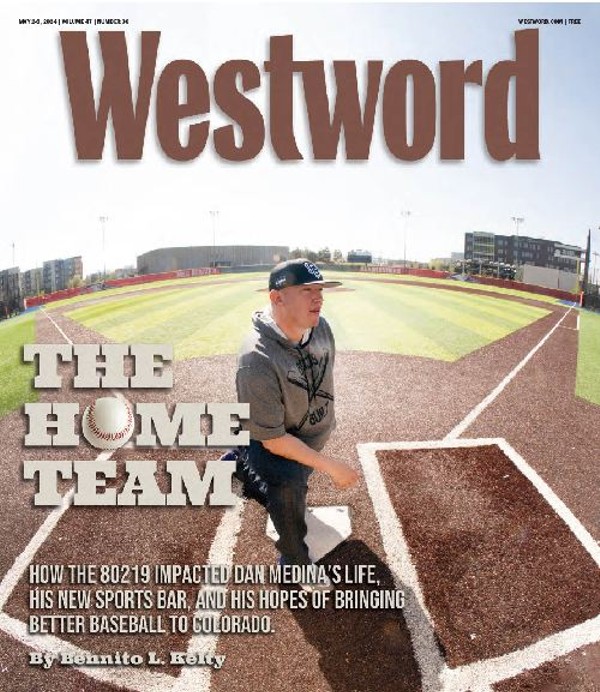"He was born in 1908 in Birmingham, Alabama," says McCloud's son, Burnis Jr. "He moved to Denver around 1929 or 1930. I think like most African-Americans in the South during that time, he left because life was barely livable in Alabama. Even though it was not that much different in Colorado, especially economically, there was at least some semblance of life in the state. He evidently had already started photography as a hobby in Birmingham, and he brought it here with him."
Then, photography wasn't the snap-and-go affair it is today. The serious photographer also had to know his way around a darkroom. That may have been where the elder McCloud's true genius shone, and though he toiled for many years as a maintenance worker at the State Capitol Building, he also managed to spend time conjuring image after image from the chemical bath. His first shot at glory came in 1939, when he won an Eastman Kodak award for amateur photography. The winning photo, a shot of four-year-old Burnis Jr. dubbed "The Smiling Cowhand," was displayed that year at the New York World's Fair. "I was about four years old, and I had this huge ten-gallon hat on," he recalls. "And then there is this big smile."
McCloud served in the Army during World War II, arriving home from the South Pacific late in 1945. "Congress passed the GI Bill, and a lot of people took advantage of it," says Burnis Jr. "Dad was one them." McCloud, back to sweeping hallways in the Capitol, enrolled at the University of Denver and graduated in 1950 with a degree that combined photography, public relations and advertising skills.
"By this time, he's getting his seat wet in the professional photography 'game,' as he used to call it," Burnis Jr. continues. "Friends and acquaintances began asking him to do their weddings and other social events--even a few funerals. He made sure he was real popular with three different governors--they arranged to get him up-close and personal to visiting celebrities." That choice list included not only Presidents Truman and Eisenhower, but also the indefatigable Mae West.
When the capitol's maintenance contract was farmed out to private companies in 1952, McCloud found himself unemployed. "He's got a wife and child, and he's trying to pay for a home. He has no job, but he's got a burgeoning photography business. Rather than go out and find another job, his friends and relatives encouraged him to really get into the photography thing."
The time was ripe for a black photographer in Denver. "There weren't a whole lot of photographers of any hue around at the time," Burnis Jr. notes. Working out of his home, the diligent McCloud was successful enough to find himself with more work than he could handle, and as a teen, Burnis Jr. joined his father's business, working mostly in the darkroom while the elder McCloud was out shooting. It became a round-the-clock operation. Dapper and dedicated, McCloud threw himself into his professional role. When he shot a wedding, Burnis Jr. remembers, he dressed for a wedding: "He was a very good dresser for a man. In the '50s, when women wore hats and gloves to church, Dad was always outfitted to the max."
McCloud's reputation made him the top local choice to photograph national black conventions meeting in Denver. "Working conventions was a 24-hour thing," Burnis Jr. recalls. "Dad was lucky if he got two hours of sleep. And I might get an hour or two before I had to get up and go to school. He'd replace me in the darkroom at midnight, one in the morning, and then he'd take the prints back down to the convention the next day."
But people and landscapes were McCloud's favorite things to photograph, and he still managed to chronicle everyday black life while making a living doing the big shoots. "Dad loved people. He was just that kind of guy," Burnis Jr. says. McCloud combined that love with an artistic eye and a technician's hand. "One thing that made him an outstanding photographer--and especially in the black community--is the fact that we are a very diverse race of people as far as color is concerned. We run the gamut from white to black. Dad would take the time--and this is something he impressed on me in the darkroom--he'd say, 'Don't ever do anything that you don't intend to do right. Even if you have to print it over and over again, you have to do it until every person in the photograph shows you their best face.' He took tens of thousands of photos, and every single one is a masterpiece."
Asked which of those thousands of shots he finds most memorable, Burnis Jr. immediately mentions McCloud's candids of civil-rights and political leaders. "He took some striking shots of Dr. King," he says. "And there's one of Colorado governor John Love that stands out. Even though it's a candid, it was as good as any portrait I remember seeing of Love."
Volunteers and librarians have slowly worked over eight years to identify and organize these and the thousands of other images now at home in the library, but the gargantuan task is still unfinished. Burnis Jr., himself retired, figures it'll never be finished without his assistance because of his own intimate knowledge of the entire McCloud catalogue. "Somebody's got to do it," he says. "So I figure I'd better get started."
--Froyd
Slices of Life, photographs by Burnis McCloud, through March 31, Vida Ellison Gallery, Denver Central Library, 14th and Broadway, 303-640-6377.





